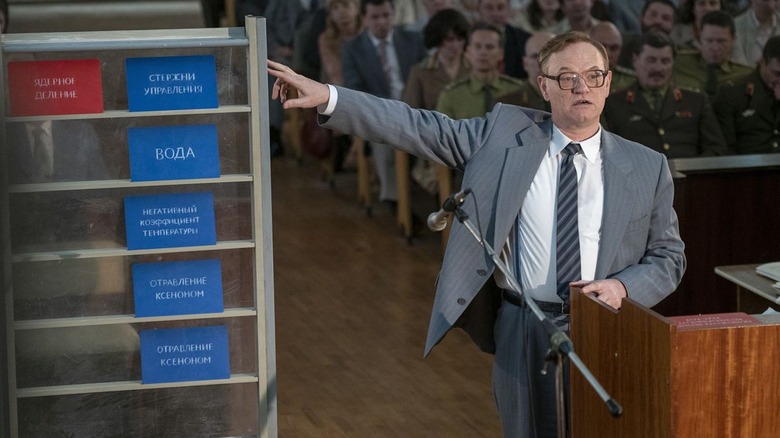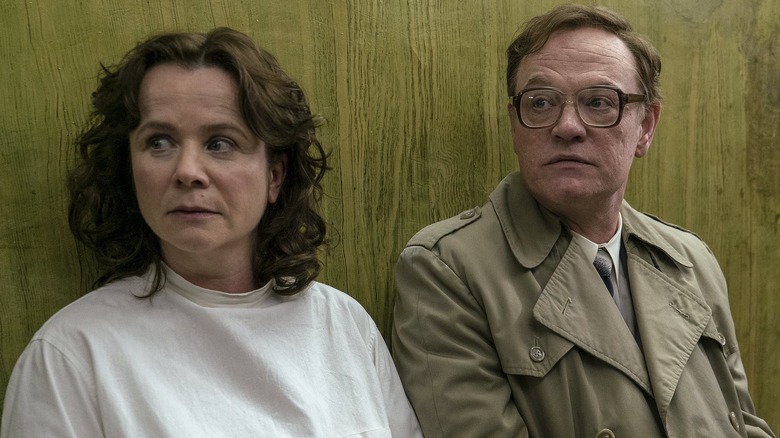Chernobyl Creator Craig Mazin Knew The Science Of The Show Was Very Important
"Chernobyl" wasn't always facts-forward when it came to getting every single detail of the nuclear meltdown disaster into the show, but that's to be expected of any dramatization of real-life events. The show had to compress two years of work investigating and mitigating the damage caused by the reactor meltdown into a single five-hour limited series, so of course characters had to be merged and the timeline had to be collapsed. One area that the storytellers knew they couldn't cut corners with, however, was when it came to the actual science behind the meltdown.
Showrunner and writer Craig Mazin is unabashedly pro-scientist and if you ever questioned his position on that, well, just look at how he chose to open his massive hit show "The Last of Us." He could have had an opener that played up the horror or just stuck to the video game's tactic of dropping you right into the lives of Joel and Sarah Miller before the rise of the mushroom zombies, but instead, he chose to create a new scene that's just a couple of scientists sitting around discussing potential end-game scenarios for the human race.
It was even more important for Mazin to get the science right with "Chernobyl," because unlike "The Last of Us," the Chernobyl meltdown actually happened and it killed a lot of people. You can't enter into a story like that, with real-life tragedy behind it, with a fast and loose attitude.
'I respect science and I respect the scientists who solved that problem'
Back in 2019 when the show came out, Craig Mazin did an interview with Vice where he spoke about getting the science right. He said that the most important people he talked to when doing research were actual nuclear scientists who could walk him through everything that went wrong at Chernobyl and explain how it happened and why it happened at a basic level.
"I respect science, and I respect the scientists who solved that problem. And I respect expertise, which I think is currently ... I don't know, not fashionable?" he said. "So my feeling is, if I'm going to make this show, and there's some science in it, I want scientists to be able to watch it and go, 'You know what? Thank you. Good job.' When it comes to the science, I want people to say, 'Okay, he cared. He cared enough to get it right.' If you don't understand the science underneath a story that is scientific in at least one significant aspect, then don't write it. That's my feeling."
He went on to admit that while he has a keen interest in science, he is nowhere near a nuclear physicist. Even now there's stuff about the Chernobyl reactor he's not completely clear on, but he wanted to make sure he knew the basics before even attempting to dramatize this story.
If you've seen "Chernobyl" you know that he stuck the landing, at least in terms of making it clear to us casual viewers what went wrong without making it feel like you signed up for a community college course. It always helps when the audience can feel like the storytellers aren't just making science-sounding things up as they're going along!

